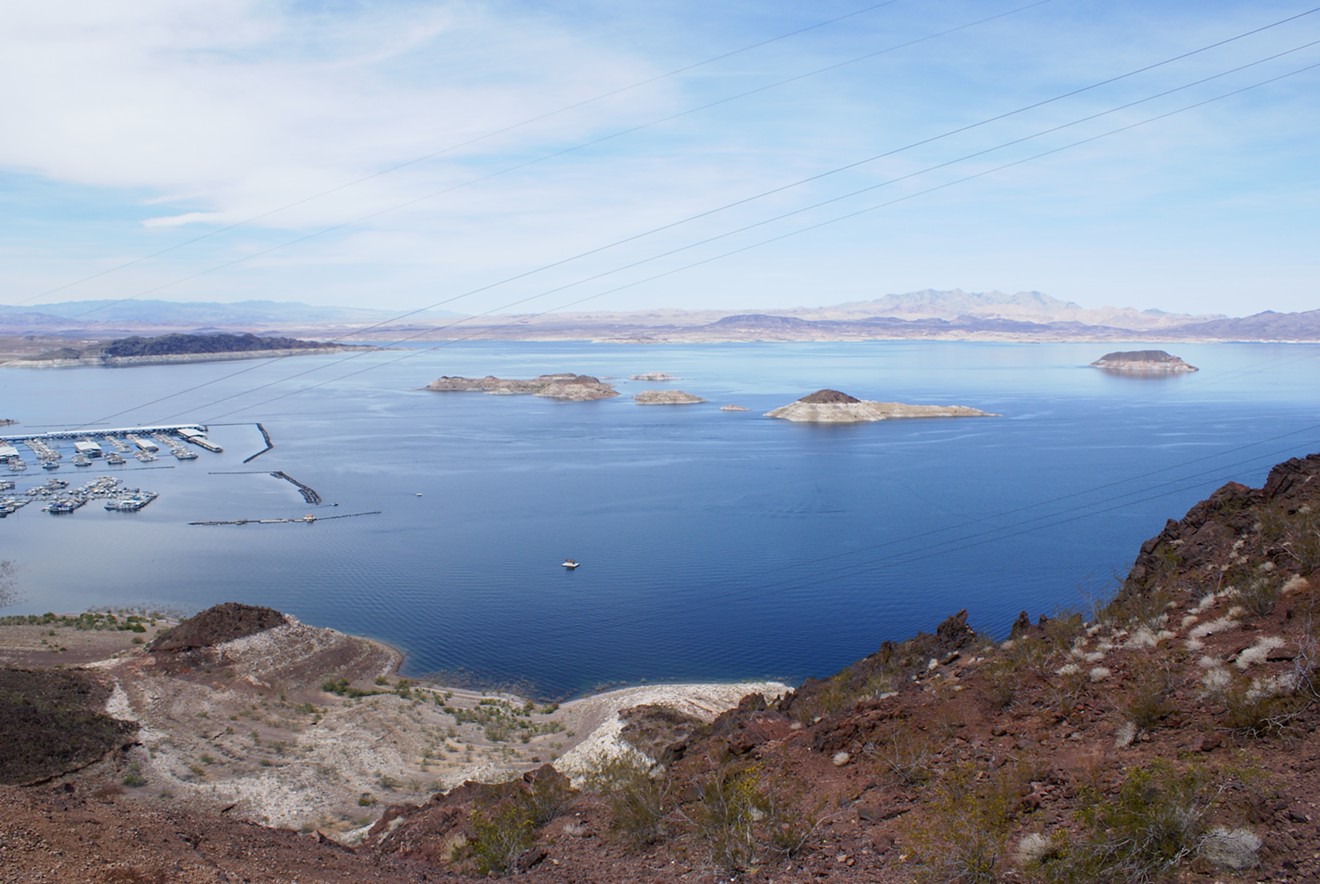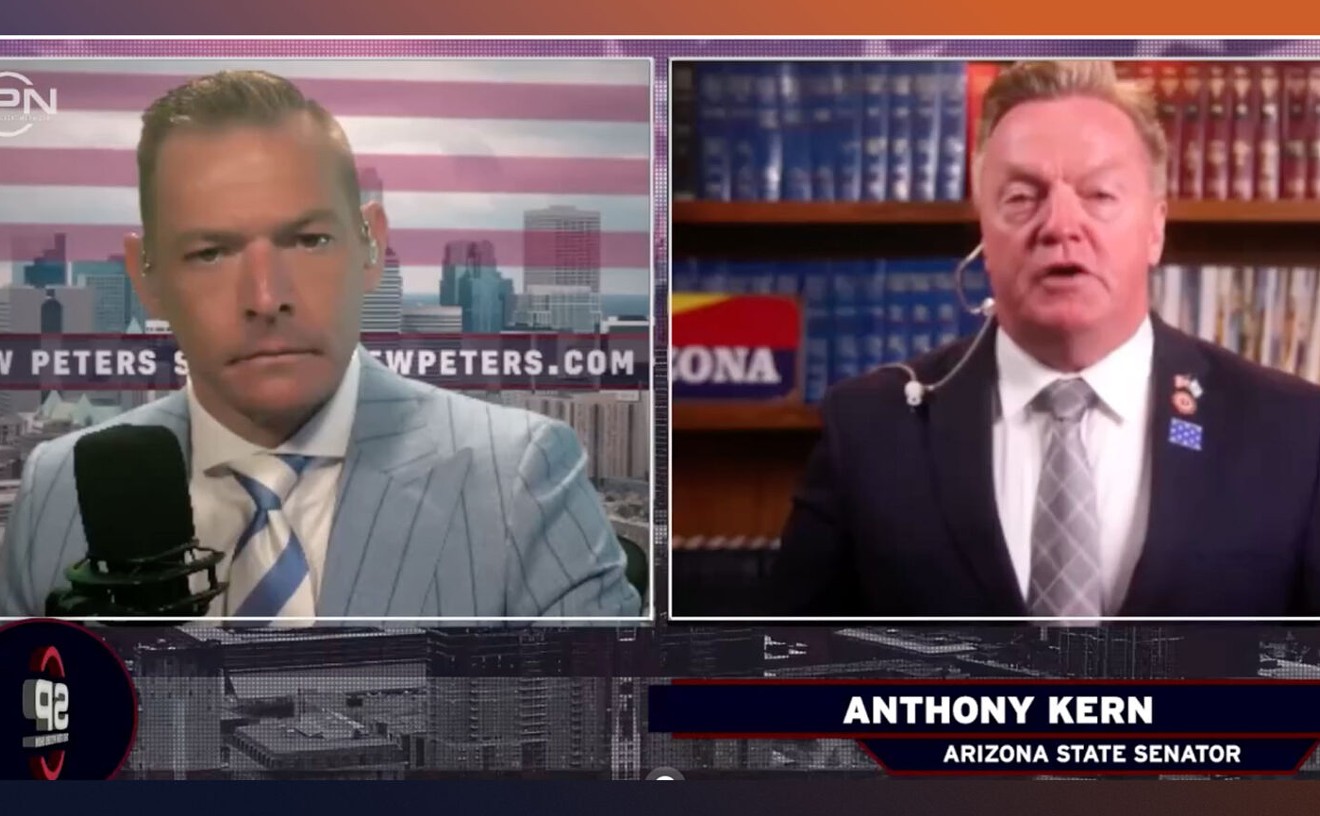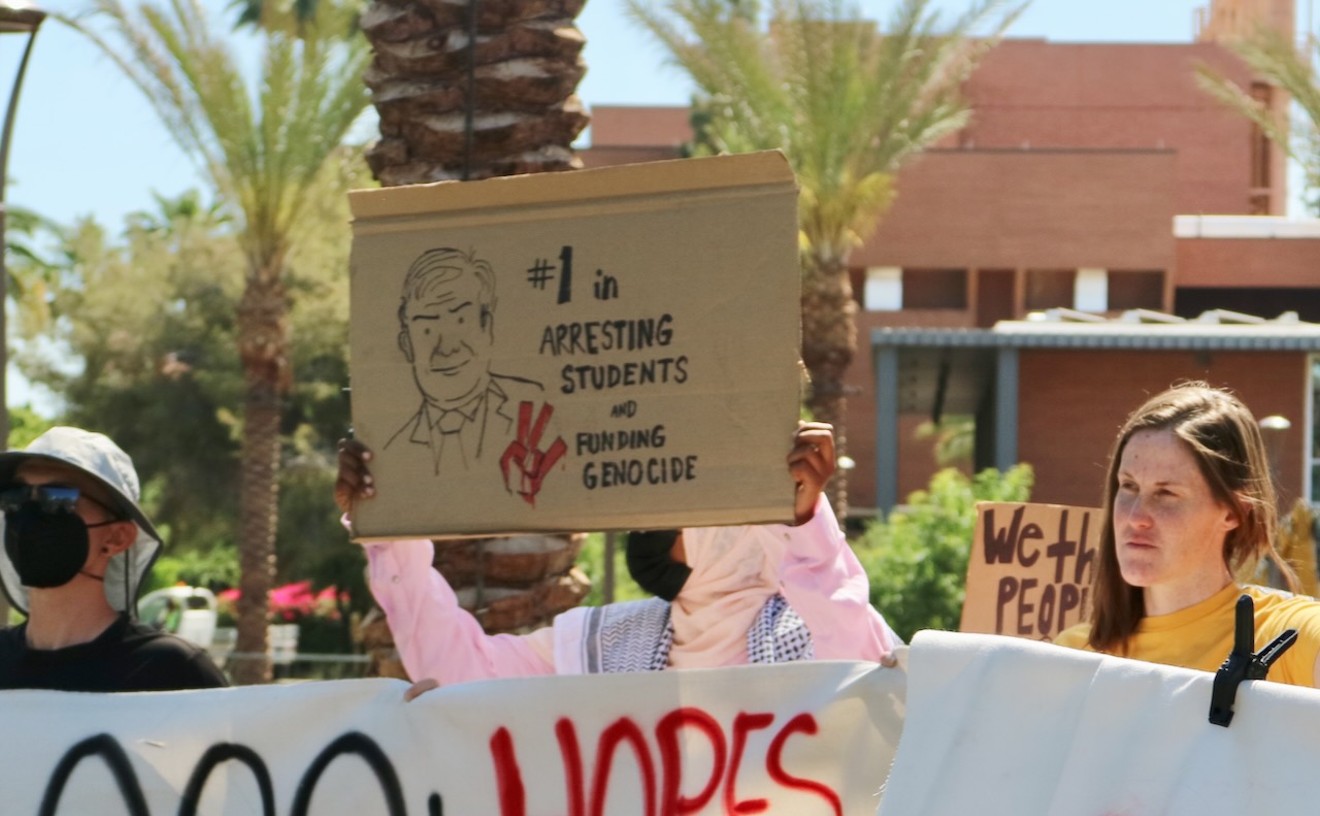Both State Senator Lisa Otondo, whose District 4 covers chunks of Yuma, Maricopa, Pima, and Pinal counties, and Tom Buschatzke, the director of the Arizona Department of Water Resources, wrote letters staunchly opposing an attempt by the board last week to amend a breakthrough drought planning proposal.
Last Thursday, after weeks of deadlock, Arizona's Drought Contingency Plan Steering Committee met publicly for the first time in six weeks. Members discussed a newly coalesced proposal that laid out how Colorado River water users would share the pain of at least 512,000 acre-feet of water cuts per year in the event of a shortage on the river. A shortage has a nearly 60 percent chance of happening in the year 2020, according to federal projections.
During that meeting, most delegates on the Steering Committee described this new Drought Contingency Plan (DCP) as imperfect but workable. Progress, it seemed, was finally underway, and just in time for a mid-December meeting with other Lower Basin states California and Nevada.

The Arizona Drought Contingency Plan Steering Committee last met on November 29, 2018.
Elizabeth Whitman/Phoenix New Times
Four days later, drought negotiation leaders are pushing back.
"The so-called 'Friendly Amendment' offered by CAWCD undermines the good faith negotiations that led to this hard fought compromise," Otondo, a delegate on the Steering Committee, wrote in a letter to the board and to other members of the Steering Committee on Monday.
"The amendment was not circulated in advance, creating deep suspicion about its drafters' motives," Otondo wrote. "This threatens to trigger further amendments from others who want to modify the deal, thus negating the progress we have made ... One ill-conceived modification can unravel an agreement and divert us from our common goal."
Buschatzke, co-chair of the Steering Committee, addressed his letter directly to Cesare and Lisa Atkins, the two CAWCD board members who are delegates on the Steering Committee.
The remaining dozen members of the CAWCD board, the Steering Committee delegates, and Ted Cooke, co-chair of the Steering Committee and the general manager of the Central Arizona Project, were copied.
Read the letters from State Sen. Lisa Otondo and from Arizona Department of Water Resources Director Tom Buschatzke.
"I believe the Implementation Plan is a viable path forward," he added, referring to Thursday's initial proposal. "I ask that you continue to work together with us, and with all stakeholders."
The Friendly Amendment called for four changes to that initial proposal, which aimed to compensate farmers, tribes, and municipalities for cuts to their Colorado River water in the event of a shortage, and to do so without drawing down on water stored in the reservoir Lake Mead.
One of those changes would shake up how 150,000 acre-feet of water left in Lake Mead by the Colorado River Indian Tribes would be used. Under the CAP board's proposed Friendly Amendment, the state of Arizona and nongovernmental organizations would pay for some of that water, and it would not count as part of the annual 512,000 acre-feet that Arizona would have to give up — i.e., leave in Lake Mead — under a DCP.
The Central Arizona Project would fund the rest of the water left in the reservoir by the Colorado River Indian Tribes, which would count toward Arizona's DCP contributions.
Under the original proposal, the state would have funded all of the water from the Colorado River Indian Tribes, and none of it would have counted toward the 512,000 acre-feet."One ill-conceived modification can unravel an agreement and divert us from our common goal." — State Senator Lisa Otondo
tweet this
In other words, the Central Arizona Project was effectively proposing to count some of the tribe's water, left in Lake Mead, as cuts that Arizona would take under a DCP. It would offset what the Central Arizona Project otherwise would have had to sacrifice.
As Buschatzke pointed out in his letter, this was essentially "diverting 75,000 acre-feet of conservation to serve as the DCP Contribution that would otherwise come from CAP water users."
Otondo's criticism was worded more sharply.
For the board to propose using water from the Colorado River Indian Tribes to contribute to what Arizona will need to leave in Lake Mead under a DCP was "contrary to what we are all trying to achieve," she wrote.
Under the proposed amendment, the Central Arizona Project "would be free to divert more water from Lake Mead and deliver it to undisclosed CAP water users, instead of doing all it can to keep water in the Lake," Otondo added. She said her constituents, including farmers and tribal nations, are "vehemently opposed" to the amendment, which she described as a "deal breaker."
The amendment's other point of contention was its call for 7,000 acre-feet of water per year to go to developers, should another deal fall through that CAP's Central Arizona Groundwater Replenishment District is currently negotiating.
The "Friendly Amendment" to the latest DCP proposal that the CAP board proposed on Nov. 29.
If the DCP isn't authorized by the Legislature, then no amendments to it will be, either, Buschatzke pointed out.
In an interview after Thursday's meeting, Cesare told Phoenix New Times that the Friendly Amendment addressed specific gaps in the original plan.
"We still need a backup plan" for funding, she said, adding that although Governor Doug Ducey offered to contribute $30 million in his next budget proposal, money still needed to be appropriated.
Cesare did not respond to an email Monday seeking comment on Otondo and Buschatzke's letter.
The Friendly Amendment is the latest spark that threatens to reignite a long-running dispute between the Arizona Department of Water Resources and the board of the Central Arizona Project over whose authority holds more water in Arizona.
As a state entity, the Department of Water Resources represents all of Arizona. The Central Arizona Project, whose board members are elected from Maricopa, Pima, and Pinal counties, is a contractor that provides water to central and southern Arizona users.

The board of the Central Arizona Project at a meeting last month.
Elizabeth Whitman/Phoenix New Times
At that meeting, Terry Goddard, a CAP board member, argued that Central Arizona Project water users bore the brunt of the DCP, in terms of water and — importantly — money.
"What harm is it, in your opinion ... if we're one of the signatories on the contract, given that we're the major institution in the state to cut back on our use and to provide significant cash to make mitigation happen?" he asked.
Nicole Klobas, an attorney with the Arizona Department of Water Resources, responded flatly. "The state's authority is not up for sale," she said.











